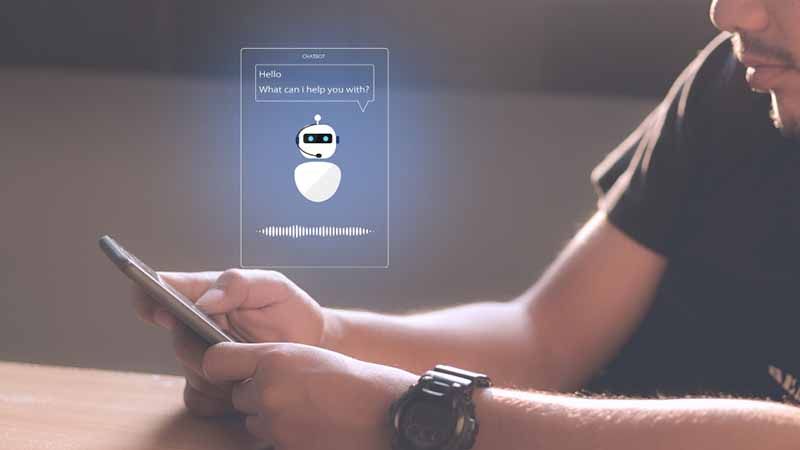Can AI-Enabled Chatbots Replace Human Therapists?
- 25 months ago
AI chatbots, even if they have been enabled with information. They can not replace humans. However, it can help the therapists to make decisions.
Healthcare with technology is future-driven healthcare. Since the inception of technology in healthcare. It has advanced the care facilities in all aspects. From primary care to advanced care facilities.
However, technology is also effective in unboxing innovation in healthcare. After covid-19 most of the healthcare stakeholders realize the true potential of technology and now they are adopting it to enhance care services.
Furthermore, technology such as IoT, machine learning, cloud computing, and especially AI has now become one of the core elements of care delivery in healthcare.
Nowadays, AI seems to be a human threat. AI is an artificial intelligence that does have the potential to perform human tasks. Currently, it is playing an important role in healthcare.
Especially in drug discovery, Ai is effectively used to identify the drug samples and collect data as well. And AI chatbots assist doctors regarding diagnosis.
But the question is will AI chatbots stop here or will they replace human therapists as well?
Let’s find out…
What are AI chatbots?
AI chatbots are computer programs enabled with artificial intelligence and natural language processing to understand customer questions and respond to them.
Traditional AI chatbots were text-based chatbots that were programmed to respond to a limited set of pre-written questions and queries by chatbot developers. It functions similarly to a FAQ.
While new AI chatbots are enabled with more rules and natural language. Which gives a conversational experience to the users. Just like talking with human intelligence.
How can it be used in a therapy session?
In your daily life, you may come into contact with chatbots. Maybe without realizing it. They are used in many businesses, but the majority of the time they are used to assist users with services.
Similarly, in healthcare, it is being used in many mental health apps providing 24/7 support and assistance. As therapists are not available all the time.
With conversational behavior, AI chatbots understand the user's feelings and navigate them.
They suggest tools and resources and engage in evidence-based therapy including mood tracking. Of course, they can’t give therapy sessions to the patient just like therapists, they can collect the metrics.
[ Also check: Why do we need therapy and things therapists wish you knew ]
Does AI have the ability to work just like a human: How AI is transforming the future of therapy sessions?
Firstly, let’s understand the role of therapists and AI in therapy sessions.
AI chatbots as we discussed are highly used in tracking the patient's metrics such as mood tracking and mindfulness.
They have been used as an assistant to therapists. This helps the therapist collect numerous data sets from the patients without interference from the therapist.
However, therapists have a high task full job, and their major time is consumed in collecting data regarding patients and check-listing it. While they have end numbers of patients to attain in a day. And many times they were not able to attain all the patients.
Here, we found a gap in it. AI can fulfill these gaps by helping out therapists as primary care assistants. Using AI chatbots can be effective in reducing the time of care delivery.
For instance, before the therapist consults the patient, AI chatbots can collect data regarding patient metrics and serve that data to the therapist while treating a patient. As a result, it can help the therapist to make decisions regarding the diagnosis.
However, AI is best at tracking the patient's feelings, emotions, and moods using an advanced AI system.
Through virtual conversation, AI-enabled therapists identify the diagnosis and symptoms of mental health in the patients. Perhaps it is not yet used in a therapy session by healthcare professionals as it might be in a testing mode. But one can identify the potential of AI through this test.
Where are AI chatbots lacking to replace humans?
AI chatbots are good at understanding the patient's vital symptoms and collecting data but when it comes to treating patients just like therapists. They are not effective in it. Because one of the main reasons is knowledge. AI is made for conducting several tasks.
They have no medical knowledge at all, while therapists do study and have knowledge about treating the patient.
Even if they have been enabled with information. They can not replace humans.
There are three human qualities that AI will not be able to replicate (at least not in the near future): experience, judgment, and values. Which is a very important factor while treating the patient.
If you feel stuck or confused, remember you are not alone, help is just a few taps away. Take charge of your mental health now. Connect with verified therapists on The Wellness Corner.

How can it be helpful to the therapist?: Do AI and humans can work together?
Effective care delivery will only be possible when both work together.
AI chatbots can be used well in primary care, for collecting patient data and tracking their vital symptoms.
This can be shared with therapists so they can keep an eye on the patient metrics and when patients need guidance they can ask a doctor about their condition.
As a result, this way AI can help therapists by providing assistance with data that can help a therapist in taking critical decisions.
However, AI is not just useful in mental health therapy. It is being used in several healthcare facilities.
For instance, technological tools such as telemedicine, telehealth, and patient engagement software, are enabled with AI that helps healthcare providers connect patients and deliver primary care.
Wrapping up
Although, the best possible way of making healthcare more advanced is by utilizing both human intelligence and technology together.
Technology can be used to advance healthcare facilities but to manage technological tools human intelligence will always require.








